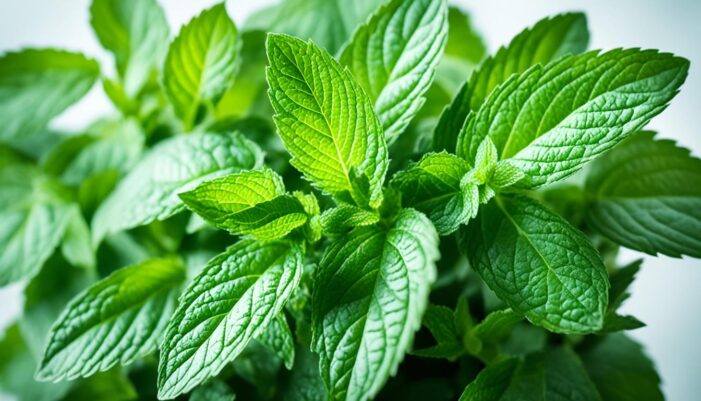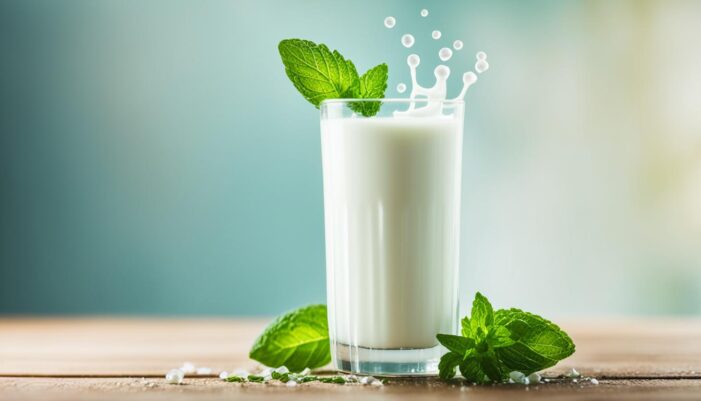As a new or expecting mom, you may have heard conflicting information about the impact of peppermint on breastfeeding and milk supply. The truth is, the relationship between peppermint and lactation is a topic of much debate and misinformation. In this article, we aim to explore the scientific evidence and separate fact from fiction, empowering you to make informed decisions about incorporating peppermint into your diet or routine.
Key Takeaways
- Peppermint is a commonly used herb, but its effects on milk supply are often misunderstood.
- Debunking myths about peppermint’s impact on breastfeeding can help nursing mothers make informed choices.
- Understanding the science behind peppermint and lactation can provide clarity and reassurance.
- Exploring the potential benefits and risks of peppermint for breastfeeding mothers is crucial.
- Seeking professional guidance can help navigate the complexities of peppermint and milk production.
The Impact of Peppermint on Breastfeeding and Milk Production
When it comes to the relationship between peppermint and milk supply, there are often conflicting reports and misconceptions. Some sources suggest that peppermint may have the potential to decrease milk production, while others claim it has no significant effect. To understand this complex issue, we’ll delve into the scientific evidence and separate fact from fiction.
Exploring the Effects of Peppermint on Milk Supply
Peppermint, a versatile herb with a distinct aroma and flavor, has long been associated with various health benefits. However, its impact on breastfeeding and milk supply has been the subject of much debate. Some studies have indicated that peppermint may have a slight negative effect on milk production, but the evidence is not conclusive.
A review of the existing research suggests that the impact of peppermint on milk supply is not as straightforward as some may believe. While there are a few studies that have reported a slight decrease in milk production, the overall effect appears to be relatively small and may not be a significant concern for most nursing mothers.
Breastfeeding Myths: Separating Fact from Fiction
One of the common myths surrounding peppermint and breastfeeding is that its consumption can lead to a significant drop in milk supply. However, the scientific evidence paints a more nuanced picture. Numerous reputable sources have found that the impact of peppermint on milk production is generally negligible, and that the herb can be safely consumed by nursing mothers in moderation.
It’s important to note that individual responses to peppermint may vary, and some mothers may experience a slight decrease in milk supply. In such cases, it’s advisable to consult with a healthcare professional or lactation consultant to explore alternative strategies for managing milk supply.
Ultimately, the relationship between peppermint and milk supply is complex, and it’s crucial to separate fact from fiction when it comes to breastfeeding myths. By understanding the scientific evidence and seeking guidance from healthcare professionals, nursing mothers can make informed decisions about incorporating peppermint into their routines while effectively managing their milk supply.
Peppermint and Lactation: Understanding the Science
To uncover the relationship between peppermint and milk supply, it’s crucial to delve into the scientific research on this topic. By exploring the potential mechanisms by which peppermint may influence lactation, as well as the role of essential oils in milk production, nursing mothers can make informed decisions about the use of peppermint and other natural remedies during their breastfeeding journey.
Essential Oils and Their Role in Milk Production
Essential oils, including peppermint, have been studied for their potential impact on lactation. Peppermint oil is believed to contain compounds that may affect the production and release of prolactin, a hormone critical for milk production. However, the research on this topic has been mixed, with some studies suggesting a possible decrease in milk supply and others finding no significant effect.
Interestingly, the peppermint effects on nursing may be influenced by the route of administration. Topical application of peppermint oil, such as on the breasts, may have a different impact compared to ingesting peppermint in the form of tea or supplements. The understanding peppermint effects on lactation requires a nuanced approach, considering various factors like dosage, method of use, and individual physiological differences.
While the peppermint and lactation relationship remains a topic of ongoing research, it’s essential for nursing mothers to consult with their healthcare providers before incorporating peppermint or any other essential oils into their breastfeeding routine. Prioritizing evidence-based information and open communication with medical professionals can help ensure a safe and informed decision-making process.

“The impact of peppermint on breastfeeding and milk production is a complex issue that requires careful consideration and individualized guidance from healthcare providers.”
does peppermint decrease milk supply?
The debate around whether peppermint can impact breastfeeding and milk supply is a common concern among nursing mothers. While some believe that peppermint can decrease milk production, the scientific evidence on this topic is mixed and often misunderstood. In this section, we’ll examine the facts and dispel the myths surrounding peppermint’s effect on lactation.
One of the main myths surrounding peppermint is that it can directly reduce a mother’s milk supply. However, research has not found a clear, consistent link between peppermint consumption and decreased milk production. In fact, many studies have shown that peppermint has little to no impact on overall milk supply.
That said, some women may experience a temporary dip in milk production if they consume large amounts of peppermint. This is likely due to the herb’s potential to reduce prolactin levels, the hormone responsible for milk production. However, this effect is usually short-lived, and a mother’s milk supply often returns to normal within a few days of reducing or stopping peppermint intake.
It’s important to note that the impact of peppermint on breastfeeding can vary widely from woman to woman. Some mothers may notice no difference in their milk supply, while others may experience a more noticeable drop. Factors such as individual sensitivity, dosage, and method of consumption can all play a role in how peppermint affects a woman’s lactation.
“The key is to pay attention to your own body’s response to peppermint and adjust your intake accordingly.”
In conclusion, while peppermint may have the potential to temporarily impact milk supply for some women, the overall evidence suggests that it is not a reliable way to intentionally decrease milk production. Nursing mothers should approach peppermint consumption with caution and monitor their own individual response to the herb.
Conclusion
In the complex and often misunderstood realm of peppermint and breastfeeding, this article has sought to provide clarity and dispel the myths surrounding its impact on milk supply. By delving into the scientific evidence, we’ve empowered nursing mothers to make informed decisions about incorporating peppermint and other natural remedies into their routines.
The relationship between peppermint and breastfeeding is a nuanced one, as the effects can vary from individual to individual. While some studies have suggested a potential decrease in milk production, the scientific consensus remains inconclusive. It’s crucial for mothers to pay attention to their bodies and monitor their milk supply when using peppermint during the management of milk supply.
By debunking milk supply myths, this article aims to empower nursing mothers to navigate the challenges of breastfeeding with confidence. Rather than relying on anecdotal evidence or hearsay, we’ve encouraged readers to seek reliable information and consult with their healthcare providers to make the best choices for their unique circumstances. Through this approach, we hope to foster a greater understanding of the nuances surrounding peppermint and its role in lactation.
FAQ
Can peppermint decrease milk supply?
There is conflicting evidence on the impact of peppermint on milk supply. Some studies suggest peppermint may have the potential to decrease milk production, while others claim it has no significant effect. It’s important to consider the scientific evidence and consult with a healthcare professional before making any changes to your diet or routine during breastfeeding.
Is it a myth that peppermint affects milk production?
The relationship between peppermint and milk supply is a topic of numerous myths and misconceptions. While some believe peppermint consumption leads to a decrease in milk supply, others claim it has no impact. By examining the scientific research, we can separate fact from fiction and provide nursing mothers with accurate information to make informed decisions.
How does peppermint affect breastfeeding and lactation?
The potential effects of peppermint on breastfeeding and milk production are not fully understood. Some research suggests that the active compounds in peppermint, such as menthol, may have the ability to influence lactation and milk supply, but the mechanisms behind this are still being explored. It’s important for nursing mothers to be aware of the scientific evidence and consult with healthcare professionals when considering the use of peppermint during breastfeeding.

